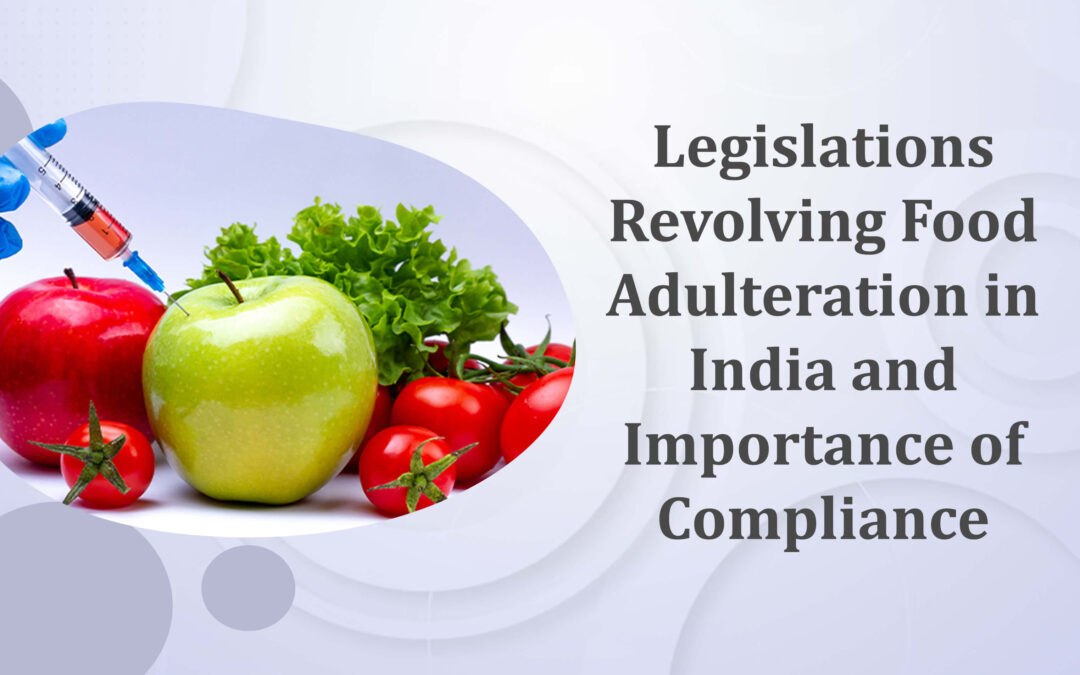Food Adulteration is a serious issue not only in India but all over the world. Adulteration of food implies addition or subtraction of some substance to / from food so that its natural composition and quality is affected. In order to curb such adulterations, the Indian Food Regulator i.e., Food Safety and Standards Authority of India (FSSAI) has directed for random sampling and surveillance of food items to curb food adulteration in India.[1] The analysis of reports in the year 2022 indicates that out of 1,07,829 around 28,347 samples were found non-confirming to the prescribed standards. [2] There are several incidents on food available in a food outlet to be adulterated, for example, in August 2022, The Food and Safety and Drug Administration Department in Ghaziabad and GB Nagar found that more than 55 shops were selling adulterated food products or carrying a false label on the products.[3] Also, 4000 litre of adulterated oil was seized from a store in Chennai.[4]
In order to prevent food adulteration there are several legislations in India which lays down strict punishments in case the Food Manufacturers fails to ensure the availability of safe food for human consumption. With an aim to curb food adulteration and to build a strong compliance management system for food manufacturers, FSSAI laid down several provisions.
Key Legislations that govern the punishments for food adulteration in India:
-
Indian Penal Code: Section 272 and Section 273 of Indian Penal Code prohibits adulteration of food articles by any person. It lays down that anyone who makes such article noxious as food or drink or intend to sell such food or drink, shall be punished with imprisonment up to 6 months or with a fine up to Rs. 1000 or both.
-
Food Safety and Standards Act, 2006: The Food Safety and Standards Act establishes the Food Safety and Standards Authority of India and lays down standards for articles of food and gives the Authority the power to regulate the manufacturer, distributor, seller and importer, to ensure availability of safe and wholesome food for human consumption. Several penalties has been prescribed for offences related to the adulteration of food either directly or indirectly. Section 51 states that a person who import , manufacture, store, sell or distribute any substandard food item for human consumption shall be punished with a fine of INR 5 lakh rupees. Strict Fines are also prescribed under Section 54 of the Act which states that any person engaged in importing , manufacturing, storing, selling or distributing any food item which contains extraneous substances for human consumption shall be punished with a fine up to INR 1 lakh rupees. A hefty penalty of INR 10 lakhs is prescribed under Section 57 of the Act for any person who manufactures, stores, sells, imports or engaged in distribution of any adulterant. Manufacturing, storing, selling, distributing or importing of any food which is unsafe for human consumption but does not cause any injury by any person / food business operator is a punishable offence and can attract a fine of not more than INR 1 lakh rupees along with 6 months of imprisonment. Section 59 also states that if any unsafe food results in grievous injury, then the person engaged in manufacturing, selling, distributing or importing will be punished with imprisonment of not less than seven years with a fine of INR 10 Lakhs.
-
Food Safety and Standards (Licensing and Registration of Food Businesses) Regulation, 2011: Schedule IV of the FSS (Licensing and Registration of Food Businesses) Regulation, 2011 lays down that in order to prevent / avoid food adulteration the Food Business Operators need to conform to the sanitary and hygiene requirements and food safety measures as prescribed.
-
Food Safety and Standards (Laboratory and Sampling Analysis) Regulation, 2011: for the protection of general public in large and also to prevent any food from being adulterated, food sampling for checking the safety of the food product under FSS (Laboratory and Sampling Analysis) Regulation,2011 is also a crucial step to determine the time when necessary action needs to be taken to prevent exposure of adulterated foods to public at large.
-
Food Safety and Standard (Food recall Procedure) Regulation, 2017: These regulation guides the food manufacturers to follow the steps prescribed for the purpose of recalling a food product which is unsafe for human consumption. From the compliance perspective, the food business operators also needs to submit a “pre” as well as “post” recall reports to the Chief Executive Officer of FSSAI and laid down the measures taken while recalling the food product unsafe for consumption.
Steps to Prevent Food Adulteration:
Food Business Operators can prevent food adulteration through regular monitoring, surveillance, following compliances and inspection of random samples of food product manufactured within their premises. Few of the best industrial practices which can be followed to prevent food adulteration are:
- Proper Storage Facility: Every food product or by-product or ingredients used in manufacturing of such food must be stored in proper manner with temperature control, and regular monitoring of such storage facilities may prevent such food/ ingredient from being spoiled.
- Application of advanced technologies for the detection of food adulteration: Advanced Technologies can be applied to detect the level of food adulteration in different food items before they are finally rolled out in the market.
- Sensitising the employees involved in manufacturing of food: The employees involved in manufacturing of food must be informed and sensitised about the ill-effects of adulterated food.
In the case of Centre for Public Interest Litigation v. Union of India (2013), the Supreme Court while analysing the soft drink claimed to be adulterated by the petitioner emphasised upon the fact that the states must effectively implement the statutory schemes and general principles / compliances laid down under Food Safety Regulations and also conduct monitoring of fruits and vegetable market. The Hon’ble Court also observed that people are protected under Article 21 against the hazardous and injurious food article and that the state needs to ensure that the Food Manufacturers strictly adhere to the norms laid down by the Food Authority.
Food Business Operators need to ensure at all times that the food manufactured / stored / distributed by them are not unfit for human consumption. In order to ensure the same, the FSSAI has laid down several compliances and also provided for stricter penalties to save consumers from adulterated food. The overall risk involved can be minimised by the Food Manufacturers if they adhere to the compliance requirements and safety requirements of food already laid down in several legislations by FSSAI. However, to minimize such risk and get it all covered, there is a need for creating compliance culture within such organization.
Lexplosion Solutions have been assisting such organizations in complying with the statutory duties and obligations, thereby mitigating their legal risks. Our flagship compliance management software, Komrisk has been helping Food Manufacturing Companies and broadly FMCG Companies in mitigating overall compliance risk. To know more connect with us now!
[1] https://www.devdiscourse.com/article/headlines/2374988-increase-surveillance-random-sampling-of-food-items-to-check-adulteration-fssai-tells-states
[2] https://www.siasat.com/consumers-beware-sharp-spike-in-food-adulteration-mislabeling-cases-2488395/
[3] https://timesofindia.indiatimes.com/city/noida/adulterated-food-items-with-false-labels-55-shops-fined-46l/articleshow/93442392.cms
[4] https://indianexpress.com/article/cities/chennai/over-4-litre-of-adulterated-oil-seized-from-chennai-store-8107733/
Written by: Amanya Gangawat
Disclaimer
All material included in this blog is for informational purposes only and does not purport to be or constitute legal or other advice. This blog should not be used as a substitute for specific legal advice. Professional legal advice should be obtained before taking or refraining from an action as a result of the contents of this blog. We exclude any liability (including without limitation that for negligence or for any damages of any kind) for the content of this blog. The views and opinions expressed in this blog are those of the author/(s) alone and do not necessarily reflect the official position of Lexplosion Solutions. We make no representations, warranties or undertakings about any of the information, content or materials provided in this blog (including, without limitation, any as to quality, accuracy, completeness or reliability). All the contents of this blog, including the design, text, graphics, their selection and arrangement are the intellectual property of Lexplosion Solutions Private Limited and/or its licensors.
ALL RIGHTS RESERVED, and all moral rights are asserted and reserved.





